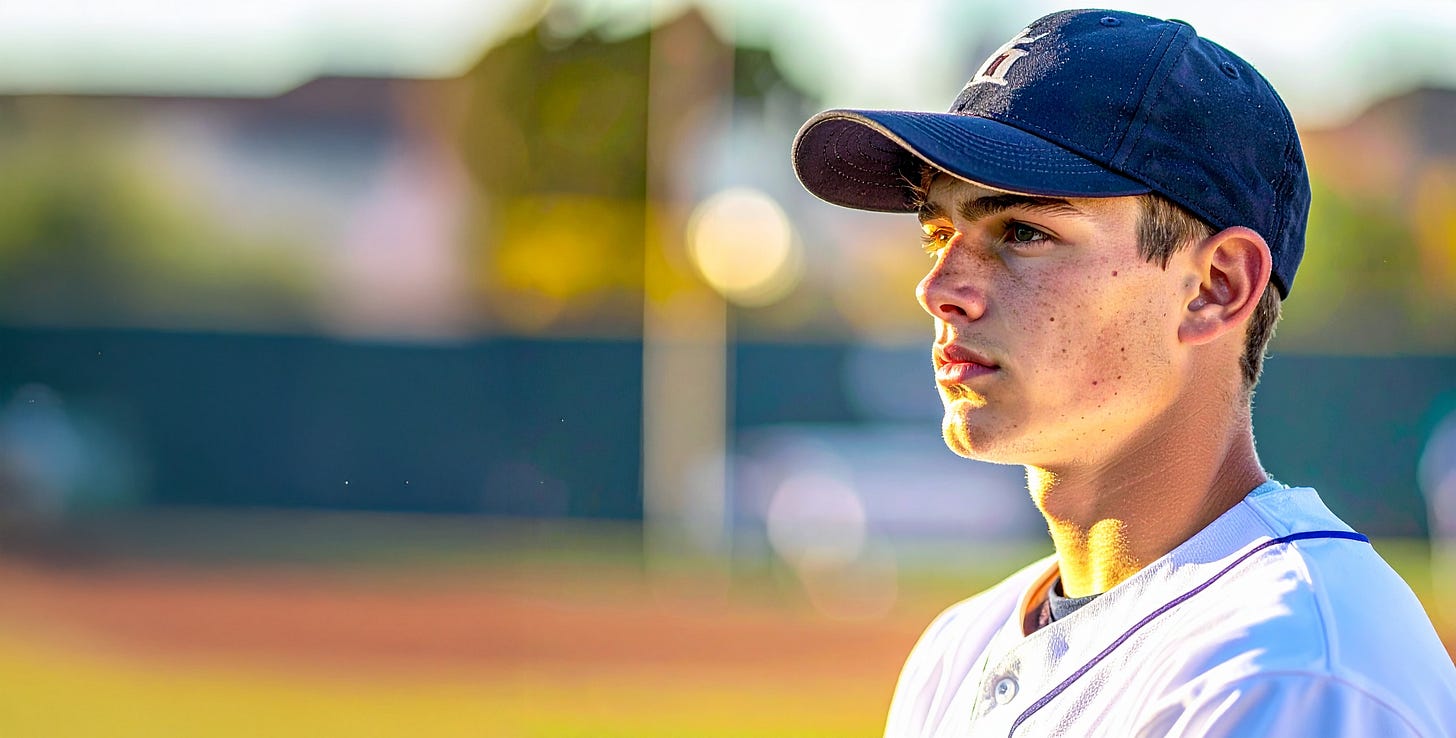I'm a senior; is it too late for me to get recruited to play college baseball?
Parents and players in their senior year frequently ask “Is it too late for me to get signed for college ball?” The short answer is no, but you need to get moving.
While it’s true that many college programs lock in the bulk of their recruiting classes by the end of a player's junior year, there are still plenty of opportunities for unsigned seniors. You just have to understand what’s still available and how to approach it.
The first step is to make sure you understand the Recruiting Cycle. It’s common for D1 programs to make =offers early. In fact, some top-level Division I schools have verbal commitments lined up long before a player's junior year ends. But many D2, D3, NAIA, and JUCO programs continue recruiting well into the spring and even summer of senior year. These schools often have different timelines, and they may be waiting to see how their rosters shape up after transfers or draft signings.
If you’re still uncommitted as a senior, shift your focus to the right level. The key is to focus on schools that are still looking. That likely means:
Division II programs filling final spots
NAIA schools with rolling admissions
Division III schools with strong academic packages
Junior colleges (JUCOs) looking to develop players for the next level
All of these paths can lead to meaningful playing time, development, and even transfer opportunities later.
Make sure these schools fit your academic and personality needs.
You’ll spend more time being a student than playing baseball in college, so it is important that you find a school that is a good academic fit in terms of your intended major or field of studay. The school also needs to be a place where you will be confortable while being away at school — the size of the school, the type of community around it, weather, and distance from hope are just a few considerations to keep in mind.
Weekly activity (if not daily)
There are some specific things you can do as an unsigned senior:
Be proactive with email. Email coaches with an updated skills video, transcripts, test scores, and your spring schedule. Be concise and respectful. Mention why you’re interested in their program and what you can offer. At this stage, a generic mass email won’t cut it—you need to be thoughtful and specific.
Don’t skip summer baseball after you graduate. Whether you are signed or unsigned, skipping summer baseball can be a big mistake:
If you are UNSIGNED — There will always be coaches searching for unsigned seniors. They also feel the pressure of having empty roster spots at this late date, so they will pay extra attention to unsigned players.
if you are SIGNED — I’ve seen players take the summer off after committing, thinking they are just going to “rest up” before heading off to school. This is usually a huge mistake. After taking the summer off, they then walk into a locker room at school filled with 22-year-old men who are stronger, in better shape, and have spent the summer honing their skills against college competition. It’s been said that the first impression is the lasting impression, and this is not the impression you want to leave.
Highlight Current Performance. For seniors, current performance matters more than ever. Coaches want to see how you’re playing right now. If you’re having a great spring, post highlights on Twitter or YouTube and send those clips directly to coaches. Let them know you’re still improving and competing at a high level.
Consider a Gap Year or Postgrad Option. If the right opportunity doesn’t materialize, consider a postgrad year or attending a junior college. These routes give players a chance to continue developing, compete right away, and re-enter the recruiting pool with more experience and maturity. Many successful D1 and professional players took this route.
Stay Positive and Realistic. It’s easy to feel discouraged when classmates are committing and you’re still searching. But remember—everyone’s path is different. There are dozens of college rosters built every year with late signees and overlooked players who kept working and stayed focused.
Final Thought. Is it too late? No. But time is tight, and the margin for error is smaller. If you’re a senior who still wants to play at the next level, focus your energy on schools that are still actively recruiting, get your materials in order, and keep improving every day. Late bloomers and determined players find homes every year—it just takes effort, clarity, and persistence.
Thanks for reading Baseball Recruiting Insider!
If you like this content and you’d like to receive weekly posts about college baseball recruiting and how you can maximize your opportunities to get recruited, consider becoming a free or paid subscriber to receive new posts and other content about college baseball recruiting.


